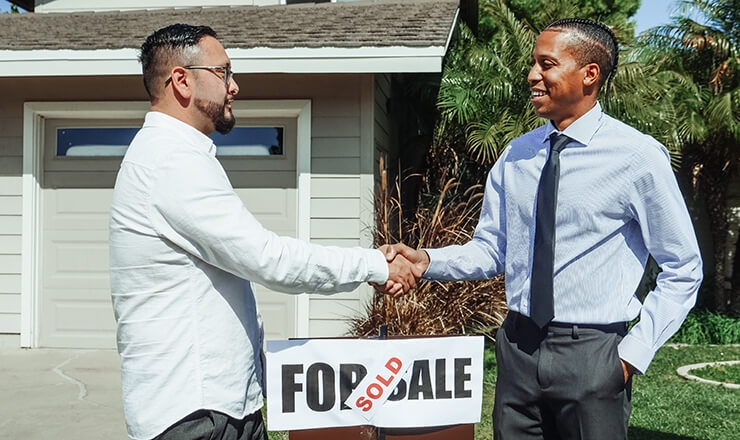The best reason to become a landlord is to make money and have a passive income. But it has risks, and if the stress is higher than the revenue, it may be time to sell your rental property.
Homeowners look at the market when deciding to sell. As a rental property owner, you have additional factors to consider. Here are 6 signs it is time to sell your rental property.
1. You’re a Remote Landlord
Being a landlord is a hands-on, on-site job. There are a lot of things you have to do:
- Find and screen tenants
- Sort paperwork
- Ensure regulations are met
- Repair and maintain the property
Your landlord duties take time and effort. Performing from a remote location makes things more difficult, for you and your tenants.
Showing, repairs, evictions – these all require a drive, or worse a flight. You can hire a property manager to handle things for you, but then a portion of your passive income goes to them.
2. Too Much Trouble
Being a landlord, you are always on call, should a tenant need you. Do your tenants call late at night when a system is busted? Or maybe they just like to nag you?
Do your tenants damage the property time and time again? Are they noisy, and you get constant complaints from neighbors? What about involvement with the police for one reason or another? These horror stories are real.
If a property is more trouble than it’s worth, and being a landlord becomes a full-time job, it is time to sell.
3. You’re Ready to Move On
Things change and being a landlord no longer fits in your life plan. It’s fine.
Maybe you need to move, or another source of income became available, or you need to focus on your family. Whatever the reason, you cannot afford to put your time and money in your rental property anymore. You need to sell it so that it’s one less thing for you to worry about.
4. Too Many Expenses
Let’s face it, maintaining a living space for tenants is expensive. There are repairs and scheduled maintenance, not to mention property taxes and insurance, and it all adds up.
If it costs more to keep the property functioning and up to par with health codes than its yearly profit, selling is the more affordable option.
5. No Positive Cash Flow
You became a landlord to make a passive income. If you are losing money or just breaking even, it is time to reevaluate your situation.
There are several reasons your cash flow could be diminishing:
- Costly repairs and maintenance;
- Property tax increases;
- Unpredictable and unexpected vacancies;
- Utility and insurance costs rise; or
- Market rents drop.
These are the risks you accept as a landlord. Managing rental property is a numbers game, and if you don’t come out on top, why continue?
6. Non-Paying Tenants
Of all the common landlord-tenant issues, tenants that pay late or not at all is the worst.
Evictions are costly and time-consuming, or maybe you are not allowed to evict the tenants. A case like this would be if the tenants file for bankruptcy and the court grants them an automatic stay. They stay in your rental property, free of rent, and you lose out on payments.
So What Do I Do?
If you want to sell fast, forgo repairs, and unburden yourself of bad tenants, sell to a real estate investor. Most investors pay cash for rental properties “as-is” – damaged, neglected, and even with bad tenants still living there. The investor pays all closing costs and additional sale fees, saving you money on traditional listing sales.
You can enjoy a quick closing, in a month, 15 days or less – you choose the date.
Using your cash proceeds, you can then invest in a new rental property and resume a passive income, or use it as needed. You have the cash, you have the choice. You are no longer locked down by a problem property and landlord responsibilities.






